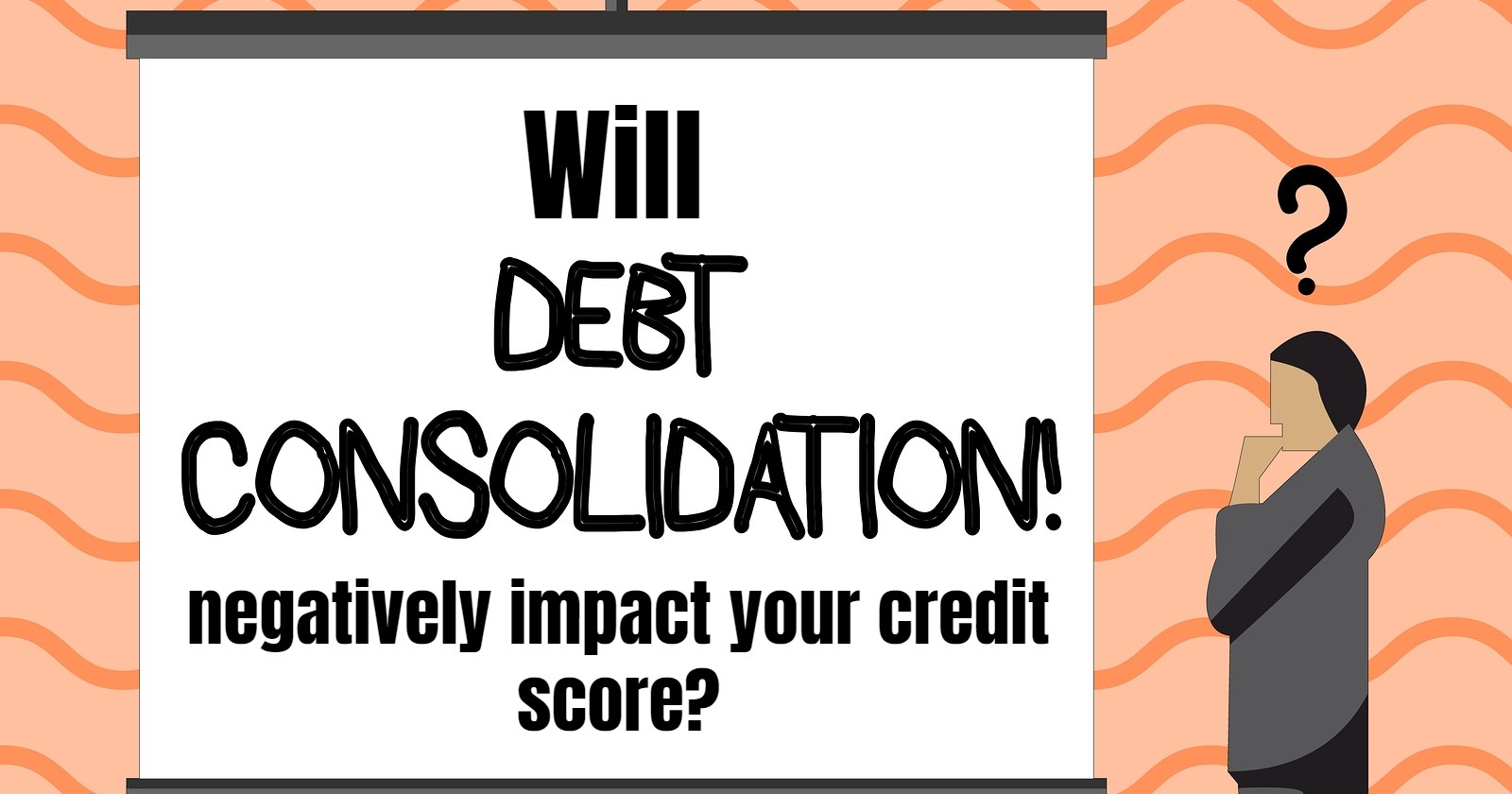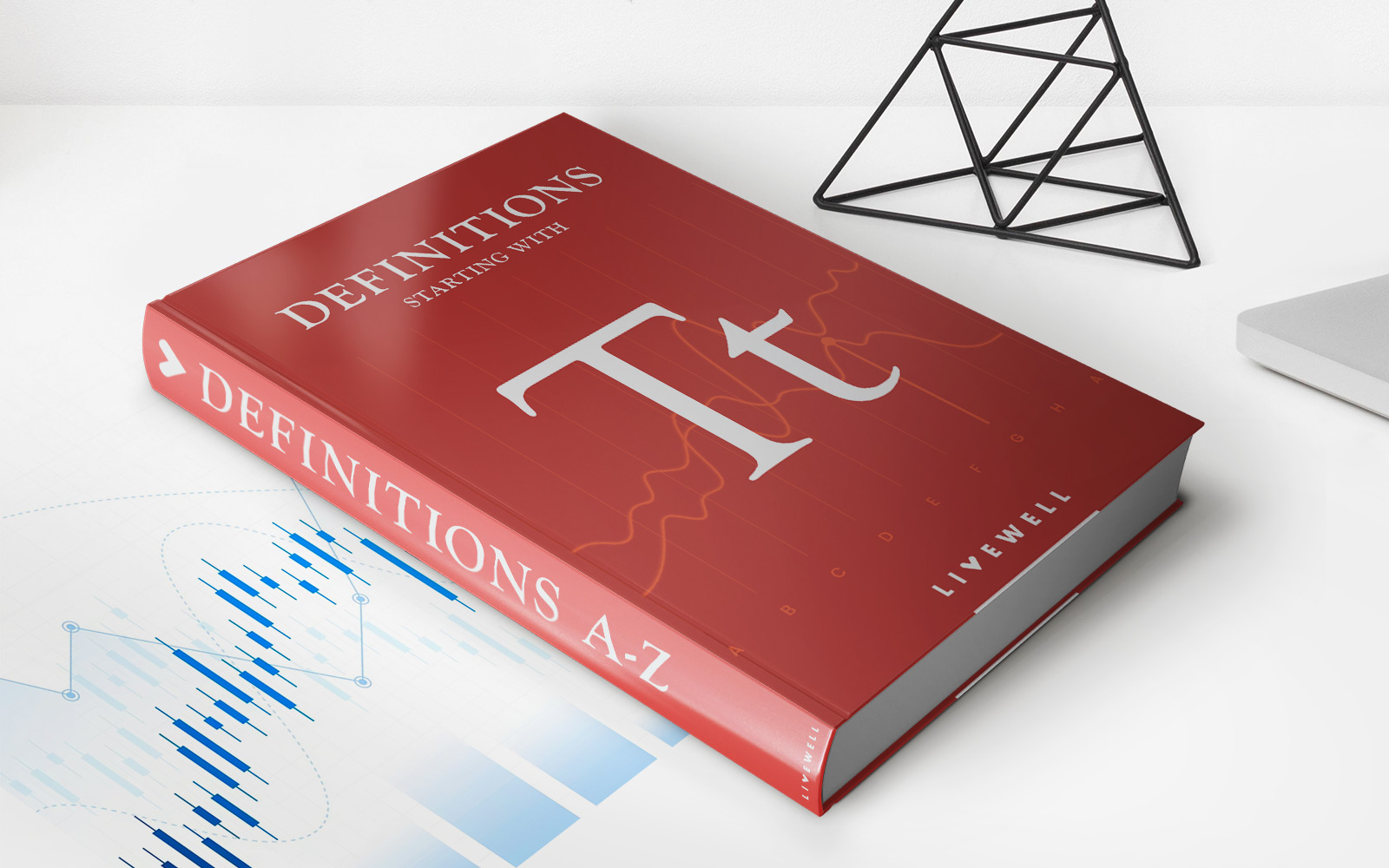Home>Finance>How Much Does National Debt Relief Affect Your Credit


Finance
How Much Does National Debt Relief Affect Your Credit
Published: December 21, 2023
Find out how national debt relief impacts your credit score and overall financial health. Learn about the effects of managing your finances and reducing debt.
(Many of the links in this article redirect to a specific reviewed product. Your purchase of these products through affiliate links helps to generate commission for LiveWell, at no extra cost. Learn more)
Table of Contents
- Introduction
- Understanding National Debt Relief
- The Relationship Between National Debt Relief and Credit
- Factors That Determine the Impact of National Debt Relief on Your Credit
- How National Debt Relief Can Affect Your Credit Score
- Common Myths About National Debt Relief and Credit
- Tips for Minimizing the Negative Impact of National Debt Relief on Your Credit
- Conclusion
Introduction
Dealing with excessive debt can be a burden on your financial well-being. It can lead to sleepless nights, constant worry, and a negative impact on your credit score. However, there is a solution that can help alleviate some of this stress: national debt relief programs.
National debt relief programs are designed to assist individuals who are struggling to repay their debts. These programs can provide financial relief by negotiating with creditors to reduce the amount owed or create a more manageable payment plan. The goal is to help individuals regain control of their finances and work towards a debt-free future.
But what exactly is the relationship between national debt relief and your credit? Does participating in a debt relief program adversely affect your credit score? These are common questions that many individuals have when considering this option.
In this article, we will explore the factors that determine the impact of national debt relief on your credit, how it can affect your credit score, and debunk some common myths surrounding the topic. We will also provide you with some tips on how to minimize the negative impact of national debt relief on your credit.
It is important to note that every individual’s financial situation is unique, and the impact of national debt relief on credit can vary. However, understanding the general principles can help you make informed decisions and take appropriate steps to manage your debt effectively.
Understanding National Debt Relief
Before delving into the relationship between national debt relief and your credit, it’s essential to have a clear understanding of what national debt relief entails.
National debt relief refers to a strategy or program aimed at assisting individuals who are overwhelmed by their debt obligations. These programs typically involve negotiating with creditors to reduce the total amount owed, lower interest rates, or establish new repayment arrangements that are more manageable for the individual.
There are various types of national debt relief options available, including debt settlement, debt consolidation, and debt management plans. Each option has its own set of pros and cons, and the most suitable one for you will depend on your specific financial circumstances.
Debt settlement involves negotiating with creditors to pay off a reduced amount of the total debt owed. This option is typically pursued by individuals who are unable to make their minimum monthly payments or are facing significant financial hardship.
Debt consolidation involves combining multiple debts into a single loan or repayment plan. This can be beneficial as it simplifies the repayment process and may result in lower interest rates.
Debt management plans involve working with a credit counseling agency to develop a personalized plan to repay your debts. The agency will negotiate with your creditors on your behalf, and you will make regular payments to the agency, who will then distribute the funds to your creditors.
It’s important to note that participating in national debt relief programs often requires a commitment to adhere to the repayment plan and meet the obligations outlined in the agreement. Failure to do so may result in adverse consequences and could potentially hinder your progress towards becoming debt-free.
While national debt relief programs can provide much-needed financial relief, it’s crucial to engage with reputable and trustworthy agencies. Take the time to research and seek recommendations to ensure you are working with a legitimate organization that has your best interests in mind.
Now that we have a foundational understanding of national debt relief, let’s explore the impact it can have on your credit score.
The Relationship Between National Debt Relief and Credit
One of the most common concerns individuals have when considering national debt relief is how it will affect their credit. While participating in a debt relief program can have an impact on your credit score, the relationship is not necessarily straightforward.
When you enroll in a national debt relief program, it generally involves negotiating with your creditors to modify the terms of your debt repayment. This could result in lower monthly payments, reduced interest rates, or a lump-sum settlement payment. The changes made to your debt may be reported to credit bureaus and reflected on your credit report.
It’s important to understand that national debt relief itself is not inherently negative for your credit. In fact, it can provide an opportunity for you to get back on track with your finances and eventually improve your credit standing. However, there are factors that can contribute to a temporary decline in your credit score.
Firstly, when you enroll in a debt relief program, you may need to stop making your monthly payments to your creditors. This is because the program will require you to redirect your payments to a trust account, which will be used to negotiate with your creditors. As a result, missed or late payments may be reported on your credit report, which can negatively impact your score.
Secondly, the changes made to your debt may be reflected on your credit report. For example, if you settle a debt for less than the full amount, it may be reported as “settled” or “paid for less than the full balance.” While this may have a negative effect on your credit score, it’s important to keep in mind that having a settled account is generally viewed more favorably than having an account marked as unpaid or delinquent.
Lastly, the length of your credit history and the types of accounts you have can also affect your credit score. When you enter a debt relief program, it may result in the closure of some of your accounts. This can reduce the average age of your credit history and potentially have a negative impact on your score. However, it’s important to consider the overall improvement in your financial situation that can result from participating in the program.
It’s crucial to note that the negative impact on your credit score is often temporary and can be mitigated with time and responsible financial behavior. Making consistent payments towards your new repayment plan and maintaining healthy financial habits can help improve your credit score over time.
In the next section, we will delve deeper into the specific factors that determine the impact of national debt relief on your credit.
Factors That Determine the Impact of National Debt Relief on Your Credit
When it comes to determining the impact of national debt relief on your credit, several key factors are taken into consideration. Understanding these factors can help you better gauge how participating in a debt relief program may affect your credit score.
1. Payment History: Your payment history is one of the most important factors that influence your credit score. While participating in a debt relief program may require you to stop making payments to your creditors temporarily, it’s crucial to maintain consistent and timely payments towards your new repayment plan. Demonstrating responsible payment behavior will have a positive impact on your credit over time.
2. Account Status: The specific changes made to your accounts during the debt relief process can affect your credit score. For example, if you settle a debt for less than the full amount, it may be reported as “settled” or “paid for less than the full balance.” Accounts marked as settled or closed can have a temporary negative impact, but it’s generally viewed more favorably than having unpaid or delinquent accounts.
3. Credit Utilization: Credit utilization refers to the amount of credit you are using compared to your total available credit. When you participate in a debt relief program, it can lower your credit utilization ratio if you are able to reduce the balances on your accounts. Lower credit utilization is generally viewed positively and can have a beneficial impact on your credit score.
4. Credit Age: The length of your credit history is also taken into consideration when calculating your credit score. When you enter into a debt relief program, it may involve the closure of some accounts. This can potentially reduce the average age of your credit history, which can have a temporary negative impact on your credit score. However, as you continue to manage your debts responsibly, this factor will become less significant over time.
5. Credit Mix: Credit mix refers to the different types of credit accounts you have, such as credit cards, loans, or mortgages. When you participate in a debt relief program, it may result in the closure of certain accounts, which can affect your credit mix. While this can have a minor impact on your credit score, it’s important to prioritize your overall financial well-being rather than solely focusing on credit mix.
6. Length of Program: The length of time you spend in a debt relief program can also impact your credit score. If you are in the program for an extended period, it may result in a prolonged negative impact on your credit. However, as you make consistent payments and successfully complete the program, the positive effects will begin to outweigh the temporary negative impact.
It’s crucial to note that the impact of national debt relief on your credit score will vary from individual to individual. Factors such as your starting credit score, the severity of your debt situation, and your overall financial behavior will all play a role in determining the extent of the impact. It’s recommended to consult with a financial advisor or credit counselor to assess your specific situation and understand the potential impact on your credit in more detail.
In the next section, we will explore how national debt relief can specifically affect your credit score.
How National Debt Relief Can Affect Your Credit Score
Participating in a national debt relief program can have an impact on your credit score, but the effects are not solely negative. Understanding how national debt relief can affect your credit score can help you navigate the process and manage your expectations.
1. Initial Impact: When you enroll in a debt relief program, it often involves temporarily stopping payments to your creditors. As a result, this may lead to missed or late payments, which can have a negative impact on your credit score. Additionally, the changes made to your debt, such as settling accounts for less than the full amount, can also be reflected on your credit report and may impact your score.
2. Credit Score Recovery: While national debt relief may cause a temporary decline in your credit score, it provides an opportunity for you to recover and improve your credit standing. By consistently making payments towards your modified debt repayment plan, you demonstrate responsible financial behavior. Over time, as you successfully complete the program and maintain healthy financial habits, your credit score can begin to recover and potentially even improve.
3. Positive Factors: Participating in national debt relief can have positive effects on your credit score as well. When you successfully settle or pay off your debts, it reduces your overall debt burden. Lowering your debt-to-income ratio and credit utilization can positively impact your credit score. Additionally, the responsible payment behavior you demonstrate throughout the debt relief program can improve your payment history, a crucial factor in credit scoring models.
4. Long-Term Benefits: While the immediate impact of national debt relief on your credit score may be a concern, it’s important to consider the long-term benefits. By effectively managing your debt and completing the program, you are taking steps towards becoming debt-free. This can grant you a fresh start and provide a solid foundation for rebuilding your credit in the future.
5. Creditworthiness: It’s important to remember that creditors and lenders consider more than just your credit score when evaluating your creditworthiness. They also take into account factors such as your income, employment history, and overall financial stability. Successfully completing a national debt relief program and improving your financial situation can positively influence these factors, making you a more attractive applicant for future credit opportunities.
It’s crucial to stay informed about the impact of national debt relief on your credit and to take proactive steps to mitigate any potential negative effects. Make sure to review your credit report regularly to ensure accuracy and dispute any errors. Additionally, continue to practice responsible financial habits, such as paying bills on time, avoiding excessive debt, and maintaining a reasonable credit utilization ratio.
While national debt relief can involve initial challenges and short-term impacts on your credit score, it presents an opportunity for long-term financial freedom and credit improvement. By understanding the effects and actively managing your credit, you can minimize the negative impact and pave the way for a brighter financial future.
In the next section, we will address some common myths surrounding national debt relief and its impact on credit.
Common Myths About National Debt Relief and Credit
When it comes to national debt relief and its impact on credit, there are several pervasive myths that can cause confusion and misinformation. Let’s debunk some of these common myths to provide you with a clearer understanding of the relationship between national debt relief and your credit.
1. Myth: National debt relief ruins your credit forever.
Fact: While participating in a debt relief program can have a temporary negative impact on your credit score, it is not permanent. With responsible financial behavior and a commitment to rebuilding your credit, you can recover and improve your credit over time.
2. Myth: National debt relief is the same as bankruptcy.
Fact: National debt relief programs, such as debt settlement or debt management plans, are not the same as filing for bankruptcy. Both options address debt issues but have different implications and consequences on your credit and financial well-being. It’s important to understand the distinctions and consult with professionals to determine the most suitable solution for your specific circumstances.
3. Myth: National debt relief is a quick fix for all credit problems.
Fact: National debt relief programs can provide significant relief and help you regain control of your finances. However, they are not a magical solution that instantly fixes all credit problems. It requires dedication, careful planning, and responsible financial management to fully benefit from national debt relief and improve your credit situation.
4. Myth: National debt relief eliminates all your debts.
Fact: While national debt relief programs aim to reduce the amount of debt you owe or create more manageable repayment terms, it does not eliminate all of your debts. Certain debts may not be eligible for inclusion in a debt relief program, such as student loans or secured loans like mortgages. It’s important to have a clear understanding of which debts can be addressed through national debt relief and which ones need alternative solutions.
5. Myth: National debt relief harms your credit more than not paying your debts.
Fact: While it’s true that participating in a debt relief program can initially impact your credit score, it is generally viewed more favorably than unpaid or delinquent accounts. National debt relief provides an opportunity to actively manage your debts and work towards a resolution. By making responsible payments and showing progress, you can mitigate the negative impact and ultimately improve your credit score.
It’s important to dispel these myths and have accurate information when considering national debt relief options. Working with reputable credit counseling agencies or financial advisors can help you make informed decisions and navigate the process effectively.
In the next section, we will provide some useful tips for minimizing the negative impact of national debt relief on your credit.
Tips for Minimizing the Negative Impact of National Debt Relief on Your Credit
While participating in a national debt relief program may have some temporary negative effects on your credit, there are steps you can take to minimize the impact and maintain a healthy credit profile. Here are some useful tips to consider:
1. Make Timely Payments: Even though you may be redirecting your payments to a debt relief program, it’s crucial to continue making timely payments towards your modified repayment plan. Consistently meeting your payment obligations shows responsible financial behavior and can help limit the negative impact on your credit.
2. Stay Informed: Stay informed about the changes made to your accounts during the debt relief program. Review your credit report regularly to ensure accuracy and monitor any updates related to your accounts. Address any errors or discrepancies promptly to avoid any unnecessary negative impact on your credit.
3. Communicate with Creditors: While you may be working with a debt relief program, it’s beneficial to maintain open communication with your creditors. Inform them of your participation in a debt relief program and make sure they are aware that you are taking steps to address your debts. Keeping the lines of communication open can mitigate misunderstandings and potentially lead to more favorable outcomes.
4. Build an Emergency Fund: Establishing an emergency fund is essential during and after participating in a debt relief program. Having savings in place can help you manage unexpected expenses without resorting to additional debt. This demonstrates financial stability and responsible money management, which can positively impact your creditworthiness.
5. Develop Good Financial Habits: Improving your overall financial behavior can make a significant difference in the long run. Create a budget, track your expenses, and make a conscious effort to live within your means. Demonstrating discipline and responsible financial habits will contribute to your creditworthiness and future financial success.
6. Seek Professional Advice: Consulting with a financial advisor or credit counselor can provide you with valuable guidance throughout the debt relief process. They can help you understand the impact on your credit, offer personalized advice, and help develop a plan to rebuild your credit after completing the program.
Remember, the negative impact of national debt relief on your credit is often temporary. By following these tips and maintaining healthy financial habits, you can begin to rebuild your credit and work towards a stronger financial future.
Finally, in the concluding section, we will recap the key points discussed and emphasize the importance of finding the right balance between national debt relief and credit improvement.
Conclusion
Participating in a national debt relief program can be a viable solution for individuals burdened by excessive debt. While there may be some temporary negative effects on your credit, it’s important to remember that national debt relief is ultimately aimed at helping you regain control of your finances and work towards a debt-free future.
Throughout this article, we have addressed various aspects of the relationship between national debt relief and your credit. We explored how national debt relief works, the factors that determine its impact on your credit, and debunked common myths surrounding the topic. We also provided tips for minimizing the negative impact on your credit and emphasized the importance of responsible financial behavior.
It’s crucial to approach national debt relief with a balanced perspective. While the initial impact on your credit may cause concern, it is essential to focus on the long-term benefits and the opportunity to rebuild your credit profile. By making timely payments, staying informed, and practicing good financial habits, you can mitigate the temporary effects and set yourself on a positive path towards credit improvement.
Remember, everyone’s financial situation is unique, and the impact of national debt relief on your credit may vary. It’s important to consult with professionals who can provide personalized advice and guidance specific to your circumstances.
Ultimately, national debt relief programs offer individuals a chance to alleviate the burden of debt and regain control of their financial well-being. By understanding the relationship between national debt relief and your credit, you can make informed decisions and take steps towards a brighter future free from overwhelming debt.
So, if you find yourself struggling with excessive debt, consider exploring the options available to you through national debt relief programs. Take the necessary steps to educate yourself, seek professional advice, and make proactive choices to improve your financial situation and creditworthiness.
Remember, there is always hope, and with the right strategies and a commitment to financial stability, you can overcome your debt and build a better, more secure financial future.














